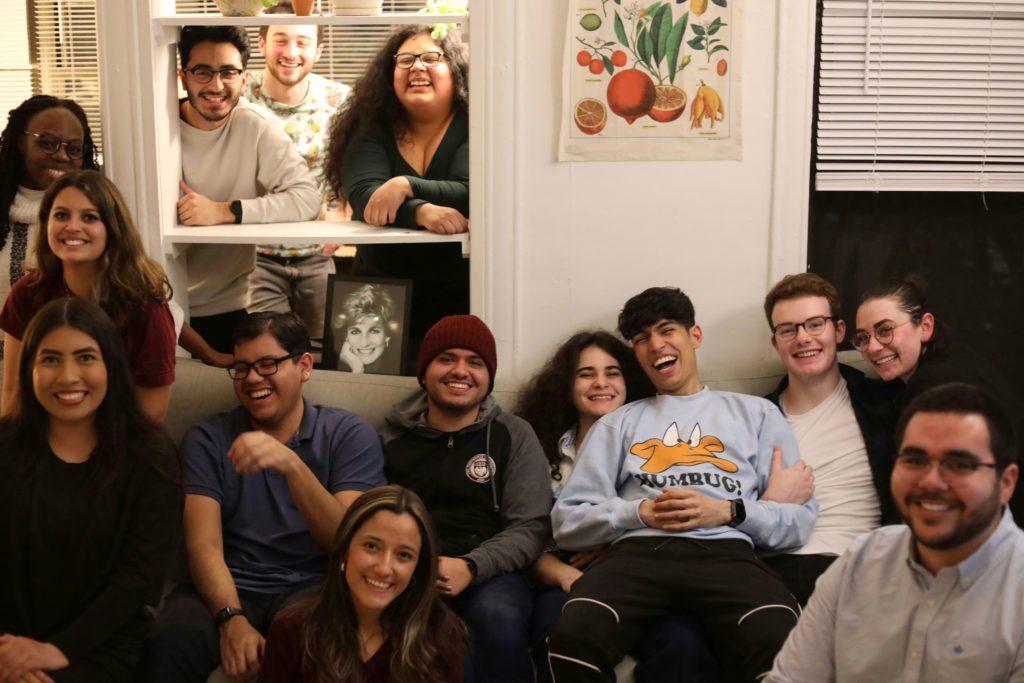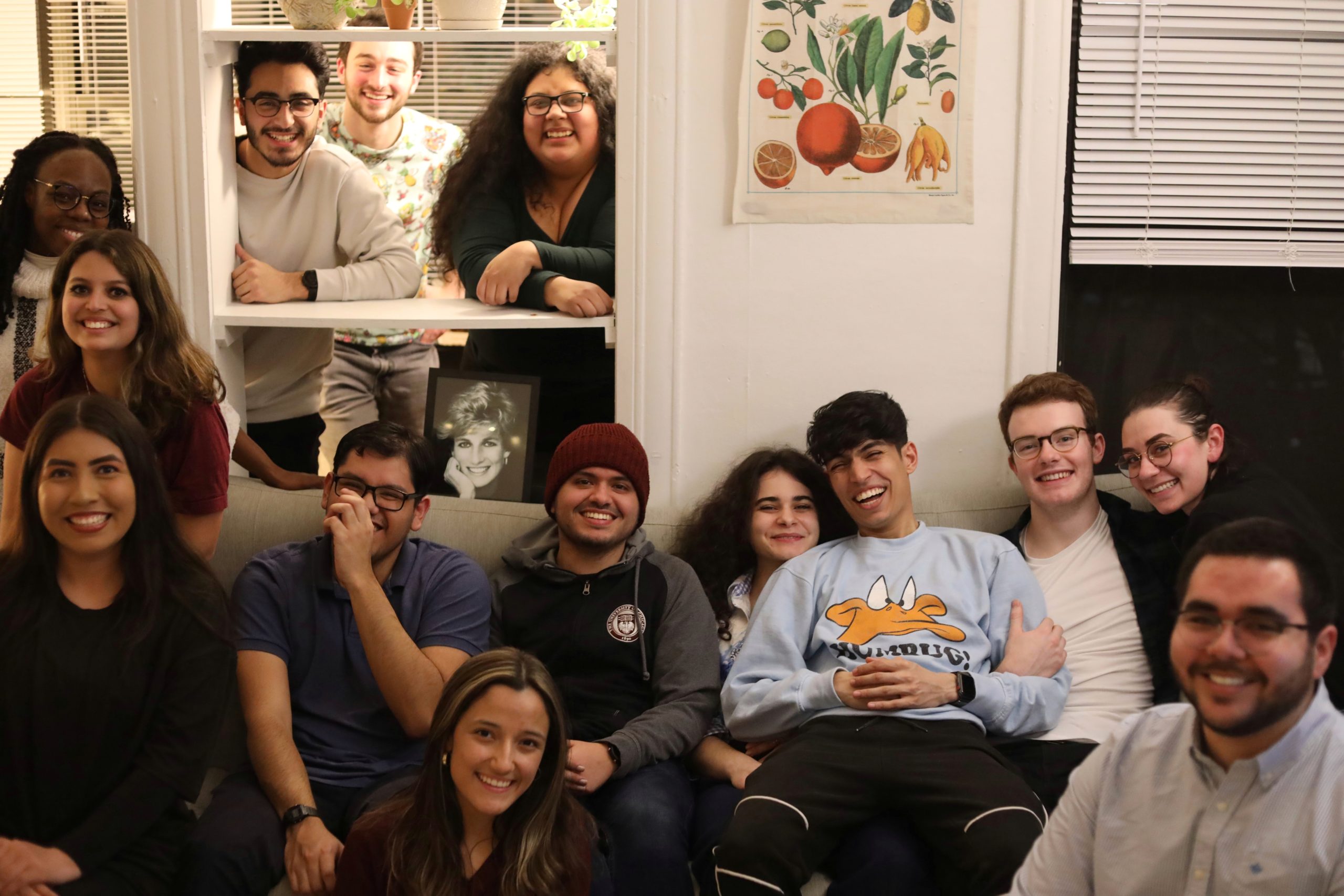I am not a confrontational individual. I never go seeking trouble, but in the rare instances it finds me, I will defend. And I will defend fiercely.
I find myself sitting amongst a group of 14 strangers, cards dealt, faces tense, deep in conversation. We are on the last viable quest, and should it fail, Evil would win the game. Good was confounded, they had yet to deduce a single player who they believed to be Evil. My friend Yoana is next to me, since we were playing as a pair, and a blood-red portrait of Morgana sat face-down between us. Our respective partners sit in a pair next to us, also playing as a duo. In a momentary lull, Yoana and I were hit by a sudden accusation, and I turned to stare my boyfriend in the face as he yelled “No YOU’RE Evil”, accompanied with a pointed hand and a confident posture.
This came from out of nowhere, and a brief moment of silence settled throughout the room.
The eruption that followed realigned our goals of the game, but before I go further, I want to explain why the framework Avalon presents is so intriguing when we analyze its game feel.
Avalon, a deception based card game, operates similar to mafia. Players are secretly divided into groups of either ‘Good’ or ‘Evil’, and must venture on quests for the kingdom. Each player can vote for the quest to either succeed or fail, and “Evil”’s goal is to fail three quests. Should all the Evil players be found out, they can still win by successfully deducing which “Good” player was Merlin. This structure compels “Evil” characters to shift the blame onto “Good” players, leading to some extremely heated justifications when trying to make sense of who is telling the truth and who is lying.
When we talk about games, we can break the elements of the game into categories under “Game Feel”, which is “the intangible, tactile sensation experienced when interacting with (video) games
The building blocks of Game Feel are as follows:
- Real-Time Control, or the response time between personal interaction and the player movement. This can also involve haptic feedback
- Simulated Space, or the aspects of structure within a game (level design, player boundaries)
- Polish, which is anything that enhances the environment that adds to the space itself, but cannot be influenced by the player (tactile aspects of board games, graphics, flavor text)
These building blocks are essential to any successful game, but when the system is designed around player reactivity, certain aspects within Avalon result in fascinating dynamics. In regards to real-time control, the “response” time is entirely dependent on the other players of the game, as their grasp of the situation and their ability to call any bluffs is what shifts the already tumultuous power dynamic. The simulated space is very formulaic, providing only a few concrete rules for the player to operate off of. Yet, the structure of these rules guides players, the objective is extremely straight forward, and each player will do whatever is necessary to prove that they are “Good”, be that the truth or not. The polish adds that additional layer of spice, immersing the players into a heavily themed space. Players can then unconsciously justify bold accusations because they are confronting the fused persona of their friend and a character explicitly labeled Good or Evil.
Centering on the loss of real-time control, it’s because the “response time” is so varied that we can find such a sense of enjoyment in deception-oriented games. Because its fluidity is based on how players interpret the responses, either physically or verbally,
I circle back to our gameplay, where we have suddenly been accused of (rightfully) being Evil. I bristled, looking my partner dead in the eye whilst calmly saying “That’s exactly something someone Evil would say”. At this point the attention was drawn to us, and our argument slowly grew in intensity until I had unconsciously realigned my goals entirely – I didn’t care about Yoana and I winning, I wanted everyone to think that Wilson and Isaaq were Evil. Safe to say the onslaught continued until neither of our duos were trusted, and regardless of however the game was to turn out, Yoana and I were satisfied with our accusatory performance.
Down to the last round, we had done our job successfuly, and another Evil player was picked for the quest, meaning we would ultimately win the game. Regardless of “winning” though, our satisfaction was derived from successfuly naviagting the tense social situation and manipulating the space to our advantage. All in all, Avalon proved to be a memorable experience that showed me the diverse range of game feel that could be produced from the same ruleset, and I encourage you to find a group of friends, sit around on a slightly-cramped apartment floor, and lie through your teeth in Avalon.

